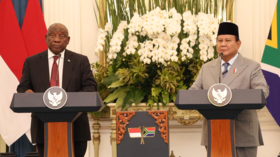India proposes sweeping new rules to regulate Big Tech

The Indian government has proposed draft amendments to information technology rules that require artificial intelligence (AI) and social media companies to label AI-generated content.
As with recent regulations in the European Union and China, the proposed measures aim to address the growing use of AI technologies that can harm users, spread misinformation, influence elections, and enable impersonations, India’s Electronics and Information Technology Ministry said on Wednesday.
“Recent incidents of deepfake audio, videos and synthetic media going viral on social platforms have demonstrated the potential of generative AI to create convincing falsehoods – depicting individuals in acts or statements they never made,” the ministry said in a statement. “Such content can be weaponized to spread misinformation, damage reputations, manipulate or influence elections, or commit financial fraud.”
The draft proposal defines “synthetically generated content” as information created or altered using computers or algorithms to appear authentic or true.
After public discussions and parliamentary debates, the ministry drafted amendments to the 2021 IT Rules that strengthen the regulation of social media platforms and other online services, particularly those with over 5 million users, as well as those that allow creation of AI-generated content.
The rules will “ensure visible labeling, metadata traceability, and transparency for all public-facing AI-generated media,” the ministry added, while inviting suggestions from the public and industry by November 6.
The new rules require platforms to label AI-generated content with markers covering at least “10% of the surface area of a visual display” or the initial 10% of the duration of an audio clip, placing more responsibilities on the likes of OpenAI, Meta, X, and Google.
One such case cropped up in May, when the chief adviser of the interim government of Bangladesh, Muhammad Yunus, accused the Indian media of “spreading false and misleading propaganda” regarding an alleged rift between his administration and the military.













